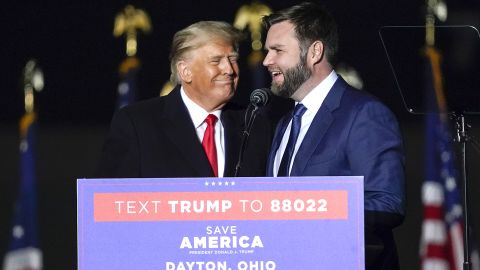
A dispirited nation worn down by crises and economic anxieties votes Tuesday in an election that is more likely to cement its divides than promote unity.
Elections are often cleansing moments setting the country on a fresh path powered by people freely choosing their leaders – and those leaders accepting the results.
But the final hours of this midterm campaign laid bare the polarized electoral environment, the specter of political violence and the possibility of disputed races – all of which have raised the stakes of the first nationwide vote since former President Donald Trump tried to overturn the 2020 election and have augured an acrimonious two years to come.
Republicans predict they will win the House of Representatives on Tuesday – a victory that, if it materializes, would give them the power to throttle President Joe Biden’s domestic agenda and clamp an investigative vise on his White House. The Senate is, meanwhile, on a knife edge with a handful of races in states like Arizona, Nevada, Georgia and Pennsylvania likely to decide who wins the majority.
Above all, the midterm campaign turned on the cost of living crisis, with polls showing the economy by far the most important issue for voters, who are still waiting for the restoration of normality after a once-in-a-century pandemic Biden had promised in 2020.
A gusher of news on job losses just before polls opened, including in the tech industry, worsened jitters about a slowdown that could destroy one of the bright spots of the Biden economy – historically low unemployment. Americans are already struggling with higher prices for food and gasoline and now must cope with the Federal Reserve hikes in interest rates that not only make credit card debt, buying a home and rent more expensive, but could tip the economy into a recession.




